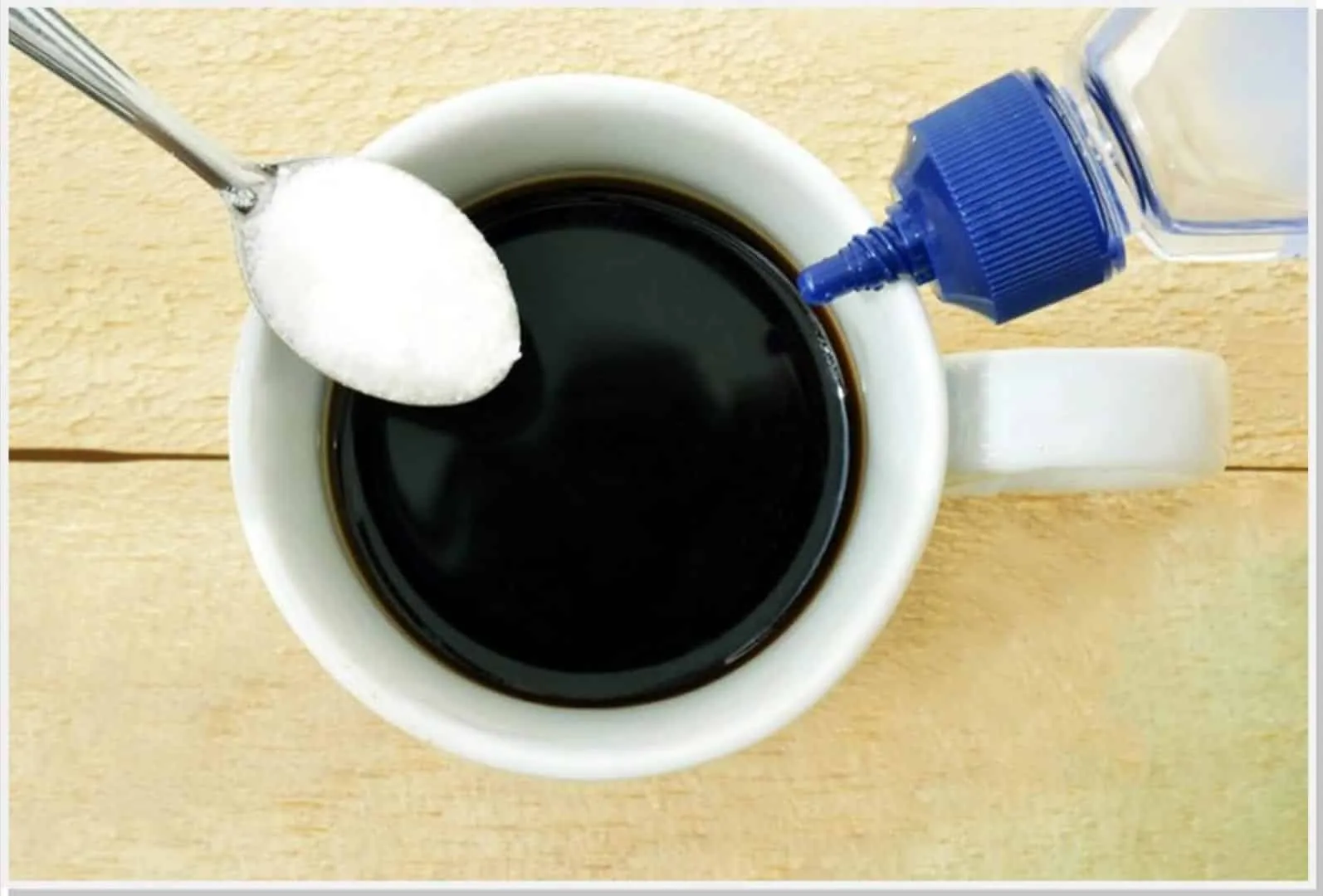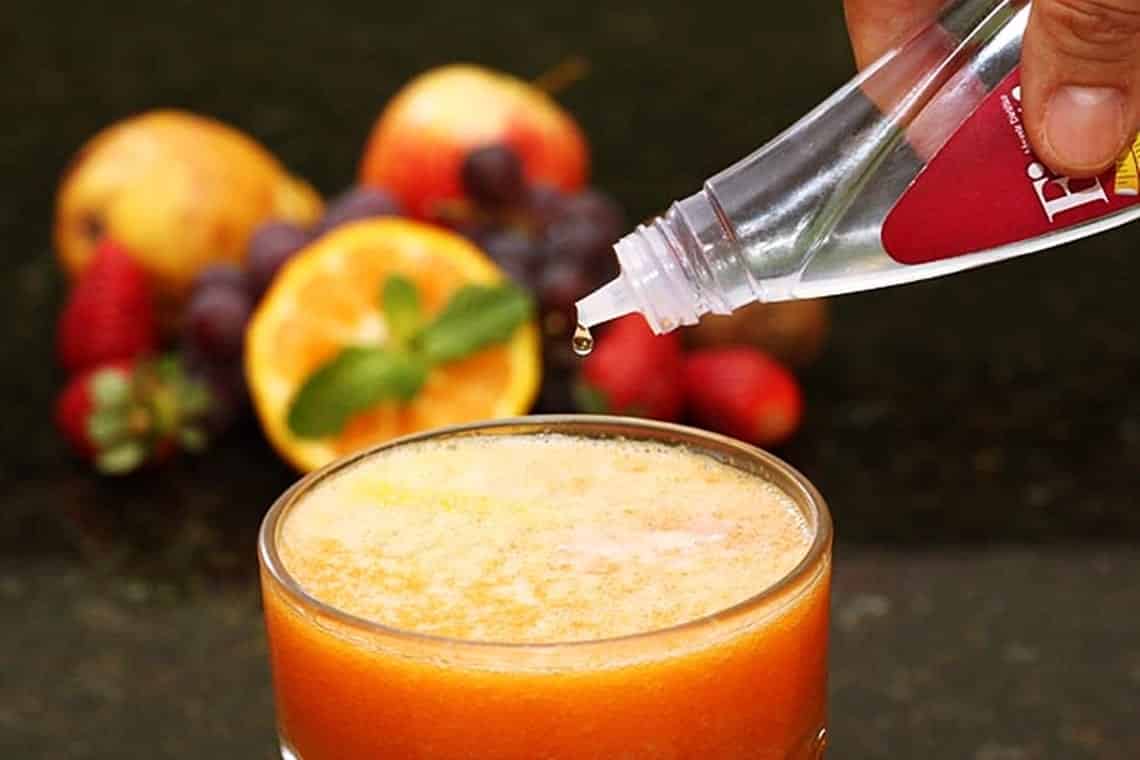Who doesn’t like putting those little drops of sweetener in their coffee, right? But, are these drops good or bad for your health? Come check it out
Above all, the sweetener is a sweet liquid, which is normally used to replace sugar, which also has a lot of calories and is harmful to your health. In fact, the sweetener can be an ally for those who suffer from diabetes and who, consequently, cannot consume sugar.
What’s more, the sweetener is typically used by those people looking for more effective methods to lose weight. Therefore, they choose the sweetener precisely because it contains fewer calories. And of course, to replace sugar with it.
Above all, for you to better understand this subject, last year, Brazil made a commitment to the World Health Organization (WHO) to curb the consumption of sugary drinks. Furthermore, Brazil has shown a willingness to reduce the content of the sweet ingredient in some processed foods.
Basically, this all started precisely because of some research released in recent years. These surveys reported that Brazilians consume more sugar than they should. So much so that we consume more sugar than the dose considered adequate by the WHO, that is, 10% of daily caloric intake.
Brazilian X Sweetener

As you may have already read, we Brazilians consume more sugar than we should. In fact, out of curiosity, it would be desirable to consume only 50 grams of sugar per day. In other words, almost impossible. So much so, that a single can of soda contains 37 grams of sugar.
Because of this research, the sweetener was created. Well, this product from the beginning came with the promise of promoting caloric reduction and at the same time having the power to sweeten, just like sugar. What’s more, with it you don’t have to worry about extra calories.
Basically, these characteristics are responsible for the expansion of the sweetener. In fact, it is increasingly present in food and especially in industrialized products. Another example that sweeteners are increasingly expanding is the arrival of new products. For example, xylitol, which comes from corn.
In addition to this, we can highlight thaumatin, sodium cyclamate, aspartame, sucralose, stevia and others. However, we can highlight that none of these products and not even the sweetener replaces the importance and richness of naturally sweet foods. For example, fruits.
Artificial vs natural sweeteners

Firstly, did you know that there are differences between sweeteners? If you didn’t know, it’s worth highlighting that there are natural sweeteners, those extracted from nature, vegetables and fruits. And there are artificial or synthetic ones, which are those created in laboratories.
In general, we automatically target natural sweeteners as less harmful. However, there are no significant differences between the two groups. In other words, everyone is on the same level. Therefore, you can choose and prefer the one that pleases your taste the most.
Natural sweeteners

In general, the most used natural sweeteners are stevia, which was the first to be extracted from a plant. In fact, it still has the power to sweeten 300 times more than sugar. And we can also highlight polyols, maltitol, xylitol, agave, erythritol, sorbitol, maltodextrin, thaumatin and fructose. Both are extracted naturally.
In fact, many contain health benefits. For example, agave, which is made from a type of cactus from Mexico, is a source of iron, calcium, potassium and magnesium.
Out of curiosity, many believe that sucralose is natural. However, she is not. Because, despite coming from sugar cane, it immediately undergoes chemical reactions. However, even so, it is still the most suitable for use in the kitchen. Well, it is stable at high temperatures.
Therefore, these sweeteners normally have the power to sweeten more than sugar, being less caloric. And they can even have better metabolic consequences. For example, the lower glycemic index. However, even though they are beneficial to health, it is still necessary to have a certain moderation.
Artificial sweeteners

Above all, it is worth highlighting that this type of sweetener is those added to drinks and also to industrialized products. Generally speaking, this type of sweetener is not metabolized by the body. Consequently, it can contribute to the development of metabolic imbalance, leading to obesity, diabetes and cardiovascular disease.
Furthermore, these products typically contain sodium. Therefore, it is not recommended for people who are hypertensive or have a tendency to retain fluids. Furthermore, it is contraindicated for pregnant women and people with phenylketonuria, a rare genetic disease that causes the accumulation of phenylalanine in the body, which causes mental retardation.
In general, this sweetener, like the others, does not contain calories. However, because it has similar signs and flavors of sugar, it can stimulate the release of insulin, as if it were sugar.
Therefore, the best-known artificial sweeteners are: saccharin, sodium cyclamate, aspartame, acesulfame potassium, and sucralose. In fact, the daily recommendation to be consumed is calculated according to the individual’s total weight and each type of sweetener.
For example, Saccharin 2.5 mg for each kg of weight; Sucralose 15mg for each kg of weight; Aspartame 40mg for each kg of weight and Sodium Cyclamate 11mg for each kg of weight. In other words, a 60kg person can consume 900 mg of sucralose per day, the equivalent of 1,080 drops.
Can sweeteners cause risks?

If used excessively, yes. However, as each type of sweetener has its own characteristics, we cannot generalize. In general, the more classic sweeteners, such as cyclamate and aspartame, have more harmful effects. For example, they generate more compensatory binge eating. In other words, very dangerous for those who want to lose weight.
In addition to these, we can highlight that sucralose can increase the incidence of inflammatory bowel diseases. For example, irritable bowel syndrome, Crohn’s disease and ulcerative colitis, which are debilitating.
And we can also highlight that saccharin is banned in Canada and cyclamate is banned in the United States. Both can increase the risk of tumors in rodent models.
Above all, natural sweeteners have been identified in numerous studies as being the healthiest. However, they can also present risks. Therefore, in all cases we recommend that you do not abuse or overdo it when consuming them.
In fact, in general, they can help you lose weight, precisely because they help reduce calories. However, they can also make your desire for sweets increase. Therefore, many nutritionists advise you to try food without the use of sugar. If it is unfeasible, then add the sweetener.
The relationship between sweeteners and obesity

Above all, the scientific journal of the Canadian Medical Association published a possible association between sweeteners and the highest body mass index, the famous BMI. Generally speaking, they are guilty of facilitating fat gain. This happens precisely because of the confusion they can cause in the body.
In other words, when consuming sweetener, you have the perception that you are eating something sweet. However, there is actually no sugar being processed. Consequently, this can reprogram the metabolism, so that he gains more weight. However, this statement has not yet been fully proven.
Therefore, there is still no evidence or true findings that the consumption of sweeteners can lead to obesity. Furthermore, we still do not have categorical conclusions that sweeteners can actually pose health risks.
Therefore, before stating anything, it is necessary to observe the interpretations more carefully.
Can children use it?

In general, the consumption of sweeteners in children only makes sense in cases of diabetes and in cases of need to control the amount of glucose in the blood. Because it is worth highlighting that at this stage, exposure to artificially sweetened drinks and foods can alter the taste.
In other words, the preference for sweets can extend throughout life, which can consequently make it difficult to balance the diet. Therefore, before the age of 2 there is no need to introduce other sugary products to children. Only present sugar from fruits and milk, for example.
If you are interested, you can also present other sweet options. For example, honey and brown sugar. Firstly, honey has calories, but it also has micronutrients, such as vitamins and minerals. However, do not abuse this food.
Brown sugar, just like honey, also contains less micronutrients. However, it is not a sufficient source. So take it easy.
Anyway, what did you think of our article? Did you learn everything about the sweetener?
Now come check out more articles from Women’s Area: Jelly, 5 easy recipes to enjoy fruit at home
Sources: Delas.Ig, Donna Fitness, Saúde.Abril
Featured image: Put me in history

Sign up for our newsletter and stay up to date with exclusive news
that can transform your routine!
Warning: Undefined array key "title" in /home/storelat/public_html/wp-content/plugins/link-whisper-premium/templates/frontend/related-posts.php on line 12
Warning: Undefined array key "title_tag" in /home/storelat/public_html/wp-content/plugins/link-whisper-premium/templates/frontend/related-posts.php on line 13




